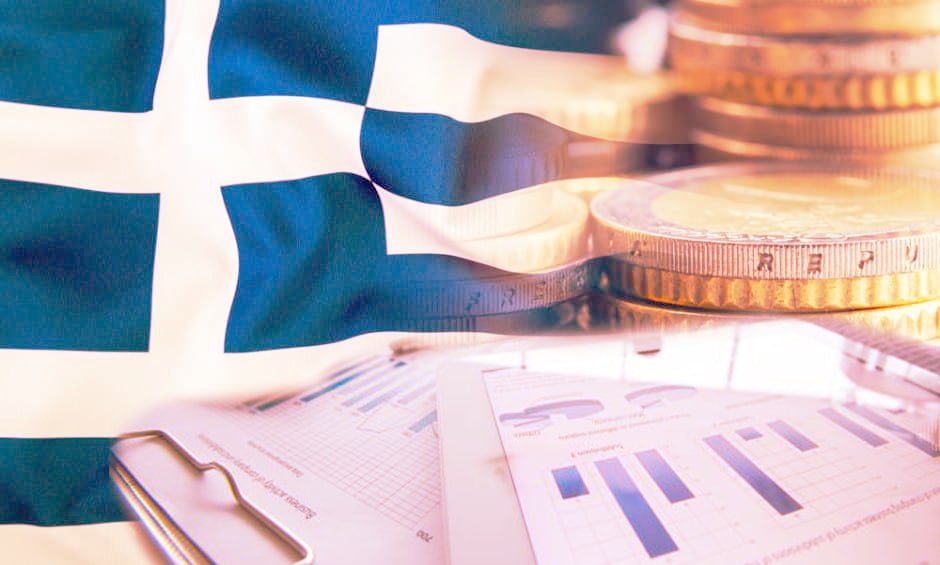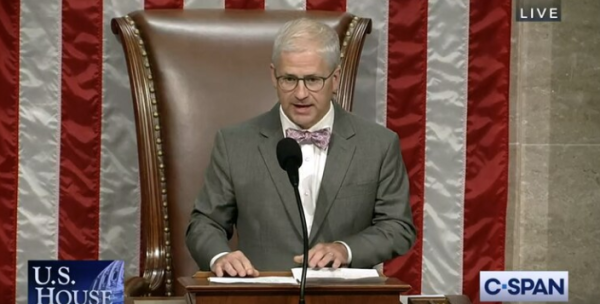
Warning alarms for individual issues of the Greek economy were rung by the head of the Parliament Budget Office, Frangiskos Koutentakis, in the context of the presentation of his quarterly report.
First of all, it points to the risk arising from the jump in the current account deficit to 20 billion euros at the end of 2022, i.e. 10% of Greek GDP, from 2.7 billion. euros in 2019. He also pointed out the fact that a much smaller rise in Greek GDP is expected in 2023, compared to last year’s 5.9%. At the same time, Mr. Koutentakis also referred to high inflation, which, although reduced in 2023 compared to last year, nevertheless “shrinks the real income of a large part of households, especially the most vulnerable ones, resulting in an increase in social inequality and social tensions”. In fact, he also referred to food prices which, despite the relative de-escalation of the general inflation index, show a high growth rate.
At the same time, he predicts that there will be a restrictive policy from next year, as the escape clause will cease to be in force, which will create issues, while he cited the consequences of high interest rates, adding that there is also an issue with the rise in overdue debts.
Greece GDP: Which sectors determined growth in 2022
At the same time, he also referred to the tragic accident in Tempi, stating that it overshadows developments, while he noted that “Beyond the general pathogens of the state apparatus, the accident highlighted in a tragic way the importance of public infrastructures and in particular their quality dimension”. Furthermore, on the subject of the elections, he spoke of “complex challenges that our country is expected to face in the coming years, particularly in the event that the uncertainty due to the upcoming elections coincides with continued international financial instability.”
The report also refers to the positive sides of the Greek economy, such as the growth of 2022, the possibility of a primary surplus in 2022, the reduction of the debt-to-GDP ratio and the reduction of unemployment, with the parallel increase of the minimum wage by almost 10 %, which will boost consumption.
Growth and inflation
According to the report of the Budget Office, the annual growth rate of the Greek economy in 2022 was 5.9%, exceeding the average rate of the Eurozone (3.5%), while, compared to 2019, the GDP increased by 4.5% (compared to 2.3% in the Eurozone). The labor market also shows a significant improvement as in January 2023 employment registered an annual increase of 2.9% and the unemployment rate decreased to 10.8% (from 13.7% in January 2022).
On the other hand, the current account balance shows a serious deterioration in 2022 with a deficit of 20.1 billion euros (against 12.3 billion in 2021 and only 2.7 billion in 2019) while the harmonized inflation, despite its deceleration since October of the previous year, remains high, at 6.5%, although lower than the Eurozone average (8.5%).
The fiscal picture is better
The 2022 fiscal picture is significantly better than budget projections. The estimate of the Budget Office is that the primary result of 2022 will probably close in positive territory, with the ESA methodology, i.e. after including the revenues from ANFAs and SMPs (which were not included in the program and enhanced supervision methodology). The positive fiscal performance is due in part to the high growth rate but mainly to high inflation and its strong impact on public revenues. For the same reason, a significant reduction in the debt-to-GDP ratio is expected, as the increase in nominal GDP exceeds the increase in nominal debt.
Decrease in income
Despite its positive fiscal effects, inflation shrinks the real income of a large proportion of households, especially the most vulnerable, resulting in increased social inequality and social tensions. The problem is mainly found in food prices which, despite the relative de-escalation of the general inflation index, show a high growth rate. In addition, the pressure on vulnerable households and businesses is intensified by rising interest rates that burden their debt servicing.
Restrictive policy
Although the tightening of monetary policy is considered necessary to deal with inflation, its negative side effects should nevertheless be taken into account for its possible further tightening. At the same time, monetary policy should be seen in conjunction with the expected revision of the European Union’s fiscal framework. According to the latest proposals of the European Commission, 2023 will be the last year of application of the escape clause and 2024 will be transitional until the finalization of the new framework. In the coming months, it is expected that the negotiations will be completed on the final form of the definitive framework that will come into force from 2025 and to the forecasts of which the fiscal policy of Greece will have to be adapted.
Therefore, in the near future, monetary and fiscal policy will have a restrictive direction, which is expected to lead to the decline of inflation but, at the same time, will have negative effects on economic activity. In this context, the effective utilization of the resources of the Recovery and Resilience Fund to support economic activity is expected to be decisive. In addition, the effect of the increase in the minimum wage on consumption is expected to be positive, without negative effects in terms of employment.
The Tempi disaster
Any economic developments are overshadowed by the tragic train accident in Tempi. Beyond the general pathologens of the state apparatus, the accident highlighted in a tragic way the importance of public infrastructures and in particular their quality dimension. The debate on public investment and infrastructure, most of which is financed by European funds, should not be limited to the amount of cash receipts and absorption rates, but should also examine the real benefit of public projects, their impact on living conditions of citizens and the productivity of businesses and, most importantly, the degree of their effective and responsible management by the competent bodies. Given that the implementation of projects financed by the Recovery Fund and the NSRF will proceed in the next period, these dimensions should be taken into account. Otherwise, the positive effects will be limited to the short-term horizon, through an increase in public spending and employment, without contributing to long-term growth prospects.
Upcoming elections
Furthermore, the report mentions the issue of the quality of institutions as a compensation mechanism for political risk and economic uncertainty. Recently, there have been international assessments of the functioning of the institutions in our country. On the one hand, the LIBE committee of the European Parliament, the State Department and the V-Dem international watchdog made negative findings, while the Economist Intelligence Unit gave a positive assessment. In any case, we believe that investing in the improvement of the quality of institutions should be an unwavering goal, as this is how the conditions for long-term economic development and a fairer distribution of its benefits are created. In addition, the effective functioning of democratic institutions, combined with the need for coordination between political forces, are the main guarantees against the complex challenges that Greece is expected to face in the coming years, especially in the event that the uncertainty due to the upcoming elections coincides with a continuing international financial instability.
Debt
Finally, special mention is also made of the outsatnding debts of citizens, which are swelling.
In January 2023, an increase in the total overdue liabilities of the State was recorded by 357 million euros compared to January 2022. In particular, overdue debts increased by 580 million euros reaching 2,049 million euros and outstanding tax refunds decreased by 223 million euros, reaching 551 million euros. According to AADE data, the total overdue balance at the end of January 2023 was 114.5 billion euros, increased by 1.5 billion euros compared to January 2022.
Latest News

Airbnb: Greece’s Short-Term Rentals Dip in March Amid Easter Shift
Data from analytics firm AirDNA shows that average occupancy for short-term rentals dropped to 45% in March, down from 49% the same month last year.

Easter Week in Greece: Holy Friday in Orthodoxy Today
At the Vespers service on Friday evening the image of Christ is removed from the Cross and wrapped in a white cloth

Meloni and Trump Meet in Washington, Vow to Strengthen Western Ties
“I am 100% sure there will be no problems reaching a deal on tariffs with the EU—none whatsoever,” Trump stressed.

ECB Cuts Interest Rates by 25 Basis Points in Expected Move
The ECB’s Governing Council opted to lower the deposit facility rate—the benchmark for signaling monetary policy direction—citing an updated assessment of inflation prospects, the dynamics of underlying inflation, and the strength of monetary policy transmission.

Current Account Deficit Fell by €573.2ml Feb. 2025: BoG
The improvement of Greece’s current account was mainly attributed to a more robust balance of goods and, to a lesser extent, an improved primary income account

Hellenic Food Authority Issues Food Safety Tips for Easter
Food safety tips on how to make sure your lamb has been properly inspected and your eggs stay fresh.

Greek Kiwifruit Exports Smash 200,000-Ton Mark, Setting New Record
According to data by the Association of Greek Fruit, Vegetable and Juice Exporters, Incofruit Hellas, between September 1, 2024, and April 17, 2025, kiwifruit exports increased by 14.2%.

Easter Tourism Boom: Greece Sees 18.3% Surge in Hotel Bookings
Among foreign markets, Israel has emerged as the biggest growth driver, with hotel bookings more than doubling—up 178.5% year-on-year.

Greece to Launch Fast-Track Tender for Offshore Hydrocarbon Exploration
Last week, Papastavrou signed the acceptance of interest for the two Cretan blocks, while similar decisions regarding the two Ionian Sea blocks were signed by his predecessor

American-Hellenic Chamber of Commerce to Open Washington D.C. Branch
AmCham's new office aims aims to deepen U.S.-Greece economic ties and promote investment and innovation between the two countries







![Πλημμύρες: Σημειώθηκαν σε επίπεδα ρεκόρ στην Ευρώπη το 2024 [γράφημα]](https://www.ot.gr/wp-content/uploads/2025/04/FLOOD_HUNGRY-90x90.jpg)




![Airbnb: Πτωτικά κινήθηκε η ζήτηση τον Μάρτιο – Τι δείχνουν τα στοιχεία [γράφημα]](https://www.ot.gr/wp-content/uploads/2024/07/airbnb-gba8e58468_1280-1-90x90.jpg)

























![Airbnb: Πτωτικά κινήθηκε η ζήτηση τον Μάρτιο – Τι δείχνουν τα στοιχεία [γράφημα]](https://www.ot.gr/wp-content/uploads/2024/07/airbnb-gba8e58468_1280-1-600x500.jpg)


 Αριθμός Πιστοποίησης
Αριθμός Πιστοποίησης